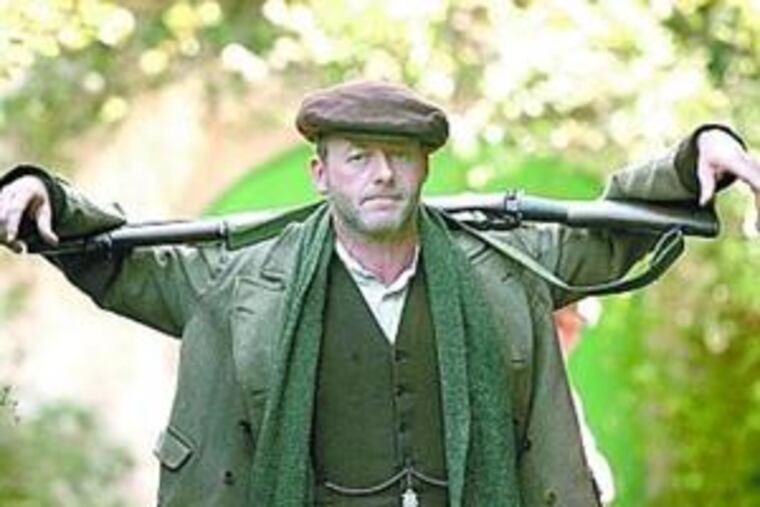At dawn of the IRA, 2 brothers ebb and flow
"The Wind That Shakes the Barley" is another reminder - like we needed one - that violent militancy, once started, is very hard to stop.

"The Wind That Shakes the Barley" is another reminder - like we needed one - that violent militancy, once started, is very hard to stop.
Ken Loach's new film is set in the formative years of the Irish Republican Army and starts with a jolt - young Irish men arbitrarily detained and abused by British soldiers, the notorious Black and Tans.
It's an incident that further radicalizes an already restive populace, where IRA men are looking for new recruits, and finding them.
Loach personalizes the situation by focusing on a pair of brothers. Teddy (Padraic Delaney) is gung-ho IRA, already a key figure in the organization, but Damien (Cillian Murphy), trained as a physician, is on his way to a teaching hospital in England and glad of it.
When he witnesses one more act of brutality, though, he decides to stay and take up arms against the British, and "Barley" becomes a study in the shifting levels of commitment between the brothers.
Damien is the reluctant recruit, but his natural smarts and leadership ability mean that he takes on an increasingly crucial role in IRA activity. In a pivotal scene, he decides that assuming the mantle of leadership means showing a willingness to pull the trigger even when the target is unarmed and, by almost any definition, innocent.
When a truce is negotiated that means peace and freedom for Damien and Teddy's corner of Ireland, the brothers come down on opposite sides.
Teddy's had enough of killing, and is willing to accept partition as a compromise. Damien, though, has crossed a line. He knows that his bloody deeds can make sense, if at all, only in an end-game of total capitulation by the British.
So Teddy fights to preserve the truce, Damien against it - a standoff that does not end until one is forced to kill the other, leading "Barley" to its logical, tragic conclusion.
Given the stakes involved, it's a bit of a surprise these scenes don't hit a little harder. "Barley," though, engages the mind more than the heart, perhaps because so much of it is given over to political argument.
Loach ("Land and Freedom") has always loved the rhetoric of 19th-century political struggles between socialism and capitalism, and indulges it here. Sometimes, the wind that shakes the barley issues forth from the mouths of those lecturing on controlling the means of production, etc.
On the other hand, this is, to my recollection, the best-looking film he's ever directed (it won the Cannes Film Festival Palm d'or last year), making full use of the tension that arose as one of the world's most hateful struggles occurred in one of its most beautiful places. *
Produced by Rebecca O'Brien, directed by Ken Loach, written by Paul Laverty, music by George Fenton, distributed by IFC First Take.